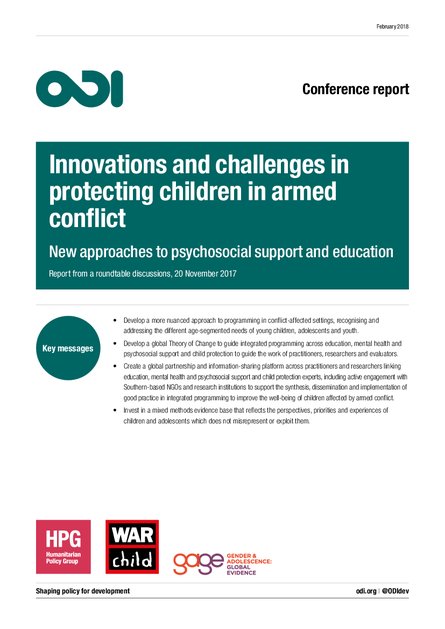
ODI hosted a roundtable discussion on 20 November 2017 to discuss new approaches to psychosocial care and education. Participants at the discussion included a range of practitioners and funders, including academics, NGOs and donors.
The roundtable, held under Chatham House Rules, focussed on four key themes: access, risks and assumptions, learning and ethics. This report highlights the main discussion points and concludes with concrete recommendations arising from the event.
Key messages:
- Develop a more nuanced approach to programming in conflict-affected settings, recognising and addressing the different age-segmented needs of young children, adolescents and youth.
- Develop a global Theory of Change to guide integrated programming across education, mental health and psychosocial support and child protection to guide the work of practitioners, researchers and evaluators.
- Create a global partnership and information-sharing platform across practitioners and researchers linking education, mental health and psychosocial support and child protection experts, including active engagement with Southern-based NGOs and research institutions to support the synthesis, dissemination and implementation of good practice in integrated programming to improve the well-being of children affected by armed conflict.
- Invest in a mixed methods evidence base that reflects the perspectives, priorities and experiences of children and adolescents which does not misrepresent or exploit them.
